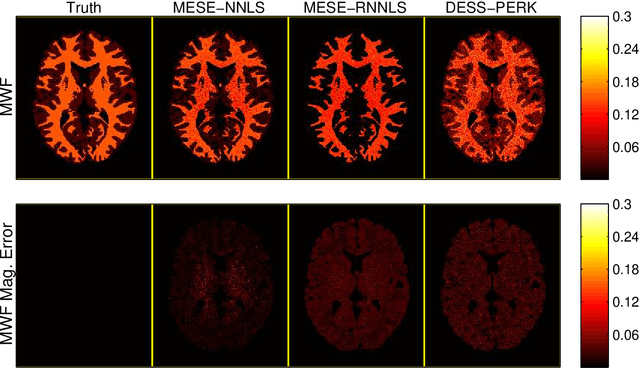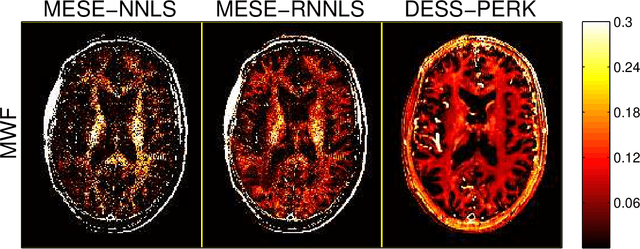Mingjie Gao
Fast, Precise Myelin Water Quantification using DESS MRI and Kernel Learning
Sep 24, 2018



Abstract:Purpose: To investigate the feasibility of myelin water content quantification using fast dual-echo steady-state (DESS) scans and machine learning with kernels. Methods: We optimized combinations of steady-state (SS) scans for precisely estimating the fast-relaxing signal fraction ff of a two-compartment signal model, subject to a scan time constraint. We estimated ff from the optimized DESS acquisition using a recently developed method for rapid parameter estimation via regression with kernels (PERK). We compared DESS PERK ff estimates to conventional myelin water fraction (MWF) estimates from a longer multi-echo spin-echo (MESE) acquisition in simulation, in vivo, and ex vivo studies. Results: Simulations demonstrate that DESS PERK ff estimators and MESE MWF estimators achieve comparable error levels. In vivo and ex vivo experiments demonstrate that MESE MWF and DESS PERK ff estimates are quantitatively comparable measures of WM myelin water content. To our knowledge, these experiments are the first to demonstrate myelin water images from a SS acquisition that are quantitatively similar to conventional MESE MWF images. Conclusion: Combinations of fast DESS scans can be designed to enable precise ff estimation. PERK is well-suited for ff estimation. DESS PERK ff and MESE MWF estimates are quantitatively similar measures of WM myelin water content.
 Add to Chrome
Add to Chrome Add to Firefox
Add to Firefox Add to Edge
Add to Edge